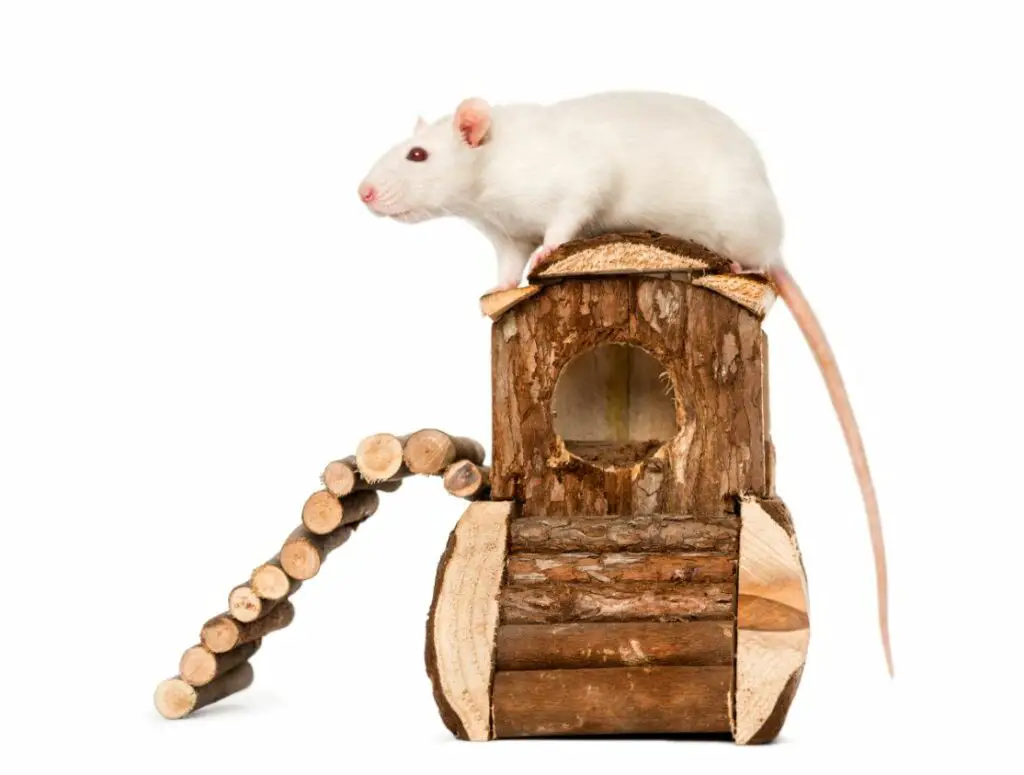As someone who has owned pet rats for many years, I understand the concern that comes with seeing your furry friend shaking.
Pet rats are known for their playful and curious personalities, so it’s important to know why they might be shaking and how to help them.
In this blog post, we will discuss the various reasons why your pet rat might be shaking, signs to look out for, and how to help them.

Reasons Why Your Pet Rat May Be Shaking
Illnesses and Diseases
One of the most common reasons why your pet rat may be shaking is due to illnesses and diseases. Some common diseases that can cause shaking in rats include respiratory infections, pneumonia, and tumors. It’s important to take your rat to the vet if you suspect they are shaking due to an illness.
Age and Anxiety
As rats age, they may experience tremors and shaking due to their muscles weakening. Additionally, anxiety can cause shaking in pet rats. If your rat is new to your home or has experienced a recent change in their environment, they may be anxious and shaking as a result.
Cold Weather
Pet rats are sensitive to cold weather and may start shaking if they are not kept in a warm environment. If your rat’s cage is in a cold room, consider moving it to a warmer area.
Stress and Fear
Similar to anxiety, stress and fear can cause shaking in pet rats. Loud noises, sudden movements, and unfamiliar people or animals can all cause stress for your pet rat.
Joy and Excitement
While it may seem counterintuitive, joy and excitement can also cause shaking in pet rats. If your rat is playing or exploring something new, they may start shaking due to their excitement.
Torpor
Pet rats are not hibernators, but they may enter a state of torpor if they are exposed to very cold temperatures. During torpor, your rat may appear to be shaking or trembling.
Signs to Look Out for When Your Pet Rat Is Shaking
- Shivering: If your pet rat is shivering, it may be a sign that they are cold or anxious.
- Trembling: Trembling in pet rats can be a sign of illness or old age.
- Jerking: If your pet rat is jerking, it may be a sign of a seizure or neurological issue.
- Twitching: Twitching can also be a sign of a neurological issue or injury.
- Convulsions: Convulsions are severe and require immediate veterinary care.
How to Help Your Pet Rat Stop Shaking
Providing Warmth
If your pet rat is shaking due to cold weather, make sure their cage is in a warm area of your home. You can also provide them with blankets or a heating pad (set on low) to keep them warm. For more info on keeping your rat warm, check out this post.
Reducing Stress and Anxiety
If your pet rat is shaking due to stress or anxiety, try to identify the cause of their stress and remove it. Additionally, spending more time with your pet rat and providing them with toys and activities can help reduce their anxiety.
Here are some common causes that cause stress in rats.
Visiting a Vet
If you suspect your pet rat is shaking due to an illness or disease, it’s important to take them to the vet for a proper diagnosis and treatment plan.
Bonding with Your Pet Rat
Spending time bonding with your pet rat can help reduce their anxiety and stress levels. Try hand-feeding your pet rat or playing games with them to build a stronger bond.
Playing with Your Pet Rat
If your pet rat is shaking due to excitement, provide them with toys and activities to keep them entertained. Playing with your pet rat can also help reduce their excitement levels.
Conclusion
In conclusion, there are many reasons why your pet rat may be shaking. It’s important to identify the cause of their shaking and provide them with the necessary care and attention. Whether it’s providing warmth, reducing stress and anxiety, or visiting a vet, your pet rat’s health should always be a top priority. As a pet rat owner, it’s important to stay informed and attentive to your pet’s needs.
Remember, if you ever have any concerns about your pet rat’s health or behavior, always consult with a veterinarian for professional advice.
- How Long Do American Eskimo Dogs Live? Important Factors and Care Tips - September 29, 2023
- Do American Bulldogs Need Grooming? Essential Tips and Care Guidelines - September 29, 2023
- Do Bengal Cats Enjoy Playing? Essential Tips for Keeping Them Active - September 29, 2023